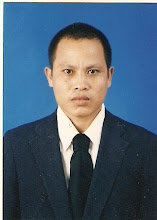Ceramic Filters for Drinking Water Improving Health in Cambodia
U.S. private, public sectors promote local manufacture of basic technology
21 October 2008
By Nancy L. Pontius
Special Correspondent
America.gov (US Gov't)
Littleton, Colorado — In more than 100,000 Cambodian households, the use of ceramic drinking-water filters produced in Cambodia is estimated to have reduced instances of diarrhea by 46 percent compared to similar households that have not used the filters.
Ceramic filters are effective, affordable and easy to use, making them “among the very best health interventions available today,” Joe Brown, a University of Alabama assistant professor, told America.gov.
Brown and Mark Sobsey, a University of North Carolina (UNC) professor, led a study of ceramic-filter use in Cambodia that showed the filters removed microbial contaminants effectively for at least three years to four years in homes.
The study, carried out by the UNC School of Public Health and funded by UNICEF and the World Bank’s Water and Sanitation Program, received the International Water Association 2008 Project Innovation Award Grand Prize for Small Projects.
"Locally produced ceramic water filters are a new technology in Cambodia,” Brown said. “This project showed that people continue to use the filters effectively generally for three to four years, usually until the filters break.”
Costing less than $10 each, these easy-to-use filters can be constructed and installed using locally available materials. The ceramic filters, which look like large flowerpots, are especially valuable in rural locations that lack safe drinking water and electricity.
“Ceramic filters are a really attractive option to help people live healthy lives,” Brown said.
MANUFACTURING, MARKETING, DISTRIBUTING CERAMIC FILTERS
Two U.S. nonprofit organizations have helped with filter manufacturing, marketing and training in schools and households in Cambodia:
• Resource Development International (RDI), which receives U.S. funding from the Give2Asia Foundation, the Coca-Cola Company and partnerships with UNC, Stanford University, Dartmouth College and the University of Manchester in the United Kingdom.
• International Development Enterprises (IDE), whose funding sources include the U.S. Agency for International Development (USAID), the World Bank and the Bill and Melinda Gates Foundation.
Two other U.S. nonprofit organizations, the American Red Cross and Potters for Peace, were involved in early assistance efforts.
In 2002, the RDI ceramic-filter factory was built with a $10,000 grant from a private U.S. donor. That factory has been self-supporting from filter sales for the last three and a half years.
“Studies [including the Brown and Sobsey filter study] have shown that people who pay for filters use them longer, more effectively and are more likely to replace them than people who are given free filters,” Michael Sampson, RDI founder, told America.gov.
“Most of our filter distribution is through very low-cost sales to private individuals,” Sampson said. RDI introduces the filters in schools using catchy music videos and puppet shows teaching hygiene education. School teachers act as distributors, selling the filters in their communities and earning extra income.
“Sometimes filters are purchased using very small loans, such as paying $1 a month for eight months,” Sampson said. “Filter ownership empowers the Cambodians to solve their own problems — helping themselves and building their self-esteem.”
More than 100,000 Cambodian households now use the filters, including Noy and Than, a Cambodian couple who live in Preak Thom with their six children, Sampson said. The family lives near a lake that provides its drinking water.
Before using a ceramic filter, family members regularly were sick with diarrhea. In 2004, they began using a ceramic filter for their drinking water and their health greatly improved, Sampson said. “Because he is now healthier, Noy is able to work more, and the couple spends less money on medicine for their children because they get sick less often.”
Than was hired in 2007 to work in the filter factory on final filter-production steps. “She has realized the additional benefit of earning a good income,” Sampson said, “And her salary comes from regional filter sales that now pay for all aspects of running the factory.”
DEPLOYING CERAMIC-FILTER MANUFACTURING INTO OTHER COUNTRIES
Several U.S. organizations, including RDI and IDE, are helping other countries with this drinking-water technology.
In addition, a new USAID public-private partnership — Market-based Approaches to Scaling and Sustaining Water, Sanitation and Hygiene (MASSWaSH) — will focus on “achieving distribution of ceramic water purification filters and other household water, sanitation and hygiene technologies at a national scale in Cambodia, Vietnam and Laos,” John Pasch, USAID regional water policy adviser, told America.gov.
MASSWaSH also will work to increase consumer demand for effective water and hygiene technologies, such as rainwater storage systems and latrines.
USAID is providing $8.5 million for this project, funding that is being matched dollar for dollar by private U.S. organizations. UNC’s Gillings School of Global Public Health will oversee the project’s research and a consortium of U.S. nonprofits will implement activities in Southeast Asia.
“A ceramic-filter factory does not require complicated technology, and can be set up virtually anywhere, using local materials, local labor and local technical expertise,” Tom Outlaw of MASSWaSH told America.gov.
RDI has helped set up filter factories in Burma, Sri Lanka, Laos and Indonesia, and is planning to help establish factories in Sudan and the Democratic Republic of Congo, Sampson said. “The key to sustainable filter distribution is having filters produced locally and distributed through existing local market channels.”
RDI worked with the nonprofit Engineers Without Borders to develop a detailed handbook — freely available to other nations — to help transfer filter technology and the lessons learned.
Information about manufacturing, marketing and distributing ceramic filters is available on the RDI Web site.
21 October 2008
By Nancy L. Pontius
Special Correspondent
America.gov (US Gov't)
Littleton, Colorado — In more than 100,000 Cambodian households, the use of ceramic drinking-water filters produced in Cambodia is estimated to have reduced instances of diarrhea by 46 percent compared to similar households that have not used the filters.
Ceramic filters are effective, affordable and easy to use, making them “among the very best health interventions available today,” Joe Brown, a University of Alabama assistant professor, told America.gov.
Brown and Mark Sobsey, a University of North Carolina (UNC) professor, led a study of ceramic-filter use in Cambodia that showed the filters removed microbial contaminants effectively for at least three years to four years in homes.
The study, carried out by the UNC School of Public Health and funded by UNICEF and the World Bank’s Water and Sanitation Program, received the International Water Association 2008 Project Innovation Award Grand Prize for Small Projects.
"Locally produced ceramic water filters are a new technology in Cambodia,” Brown said. “This project showed that people continue to use the filters effectively generally for three to four years, usually until the filters break.”
Costing less than $10 each, these easy-to-use filters can be constructed and installed using locally available materials. The ceramic filters, which look like large flowerpots, are especially valuable in rural locations that lack safe drinking water and electricity.
“Ceramic filters are a really attractive option to help people live healthy lives,” Brown said.
MANUFACTURING, MARKETING, DISTRIBUTING CERAMIC FILTERS
Two U.S. nonprofit organizations have helped with filter manufacturing, marketing and training in schools and households in Cambodia:
• Resource Development International (RDI), which receives U.S. funding from the Give2Asia Foundation, the Coca-Cola Company and partnerships with UNC, Stanford University, Dartmouth College and the University of Manchester in the United Kingdom.
• International Development Enterprises (IDE), whose funding sources include the U.S. Agency for International Development (USAID), the World Bank and the Bill and Melinda Gates Foundation.
Two other U.S. nonprofit organizations, the American Red Cross and Potters for Peace, were involved in early assistance efforts.
In 2002, the RDI ceramic-filter factory was built with a $10,000 grant from a private U.S. donor. That factory has been self-supporting from filter sales for the last three and a half years.
“Studies [including the Brown and Sobsey filter study] have shown that people who pay for filters use them longer, more effectively and are more likely to replace them than people who are given free filters,” Michael Sampson, RDI founder, told America.gov.
“Most of our filter distribution is through very low-cost sales to private individuals,” Sampson said. RDI introduces the filters in schools using catchy music videos and puppet shows teaching hygiene education. School teachers act as distributors, selling the filters in their communities and earning extra income.
“Sometimes filters are purchased using very small loans, such as paying $1 a month for eight months,” Sampson said. “Filter ownership empowers the Cambodians to solve their own problems — helping themselves and building their self-esteem.”
More than 100,000 Cambodian households now use the filters, including Noy and Than, a Cambodian couple who live in Preak Thom with their six children, Sampson said. The family lives near a lake that provides its drinking water.
Before using a ceramic filter, family members regularly were sick with diarrhea. In 2004, they began using a ceramic filter for their drinking water and their health greatly improved, Sampson said. “Because he is now healthier, Noy is able to work more, and the couple spends less money on medicine for their children because they get sick less often.”
Than was hired in 2007 to work in the filter factory on final filter-production steps. “She has realized the additional benefit of earning a good income,” Sampson said, “And her salary comes from regional filter sales that now pay for all aspects of running the factory.”
DEPLOYING CERAMIC-FILTER MANUFACTURING INTO OTHER COUNTRIES
Several U.S. organizations, including RDI and IDE, are helping other countries with this drinking-water technology.
In addition, a new USAID public-private partnership — Market-based Approaches to Scaling and Sustaining Water, Sanitation and Hygiene (MASSWaSH) — will focus on “achieving distribution of ceramic water purification filters and other household water, sanitation and hygiene technologies at a national scale in Cambodia, Vietnam and Laos,” John Pasch, USAID regional water policy adviser, told America.gov.
MASSWaSH also will work to increase consumer demand for effective water and hygiene technologies, such as rainwater storage systems and latrines.
USAID is providing $8.5 million for this project, funding that is being matched dollar for dollar by private U.S. organizations. UNC’s Gillings School of Global Public Health will oversee the project’s research and a consortium of U.S. nonprofits will implement activities in Southeast Asia.
“A ceramic-filter factory does not require complicated technology, and can be set up virtually anywhere, using local materials, local labor and local technical expertise,” Tom Outlaw of MASSWaSH told America.gov.
RDI has helped set up filter factories in Burma, Sri Lanka, Laos and Indonesia, and is planning to help establish factories in Sudan and the Democratic Republic of Congo, Sampson said. “The key to sustainable filter distribution is having filters produced locally and distributed through existing local market channels.”
RDI worked with the nonprofit Engineers Without Borders to develop a detailed handbook — freely available to other nations — to help transfer filter technology and the lessons learned.
Information about manufacturing, marketing and distributing ceramic filters is available on the RDI Web site.


0 Responses to "Ceramic Filters for Drinking Water Improving Health in Cambodia"
Post a Comment